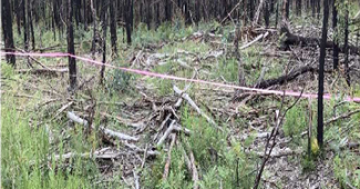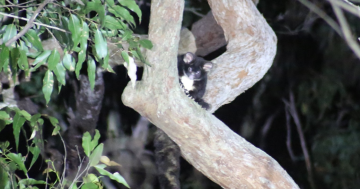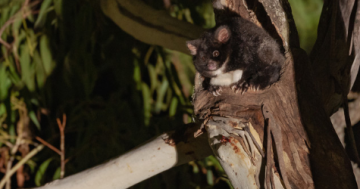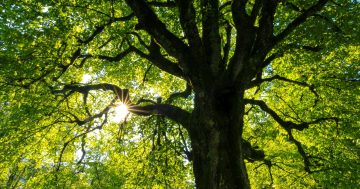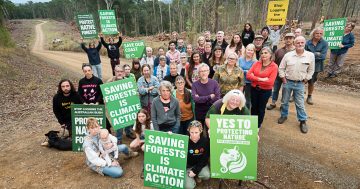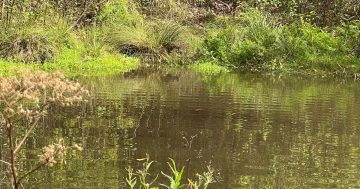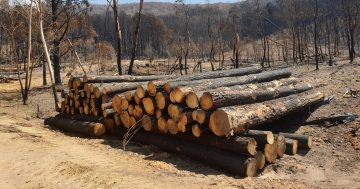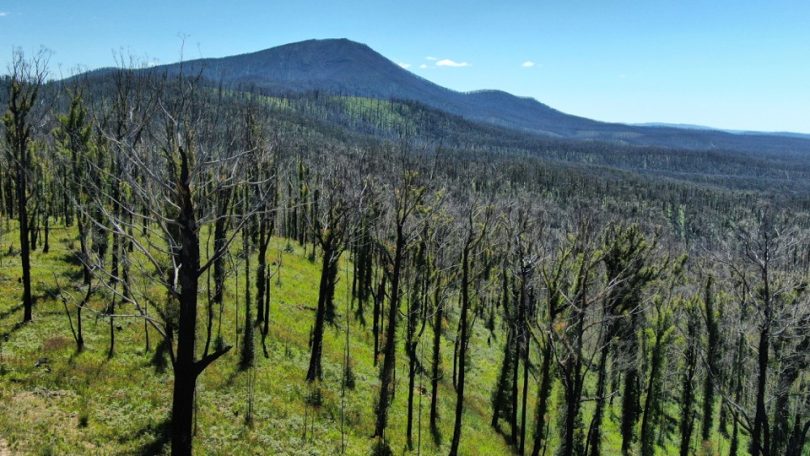
East Boyd State Forest one year after the Black Summer bushfires. Photo: David Gallan.
The Forestry Corporation of NSW is resuming its logging operations in state forests on the NSW South Coast that were heavily burnt during the Black Summer bushfires, against the advice of the NSW Environment Protection Authority (EPA).
The EPA says it is “concerned” at the Forestry Corporation’s decision to ignore new conditions put in place to protect burnt forests – including at Yambulla, Mogo, Shallow Crossing, Nadgee, Timbillica and East Boyd state forests – and resume under the standard forestry rules.
“The site-specific conditions, developed in consultation with experts and government agencies, aim to mitigate the environmental risks caused by the bushfires and are tailored for the specific impacts on plants, animals and their habitats, soils and waterways,” said an EPA spokesperson.
While the EPA monitors and regulates forestry operations, it doesn’t have the power to enforce its recommendations.
In the meantime, the EPA says it has increased its regulatory oversight of logging operations and that its officers are actively monitoring forestry operations at all stages of logging: pre, post and during harvesting.
“Where the EPA identifies a non-compliance, it will take appropriate regulatory action,” said the spokesperson.
Forestry Corporation of NSW says the local timber industry has been operating at a significantly reduced rate since the bushfires, which “threatens local jobs”.
“In the wake of the drought and COVID-19, it is crucial we support industries such as the timber industry, which supply critical resources while providing valuable jobs and economic stimulus for the regional communities that are built off the back of them,” said a Forestry Corporation spokesperson.
The company behind NSW’s largest renewable timber production says around 10 per cent of Eden’s population relies on jobs in the timber industry – a figure disputed by locals.
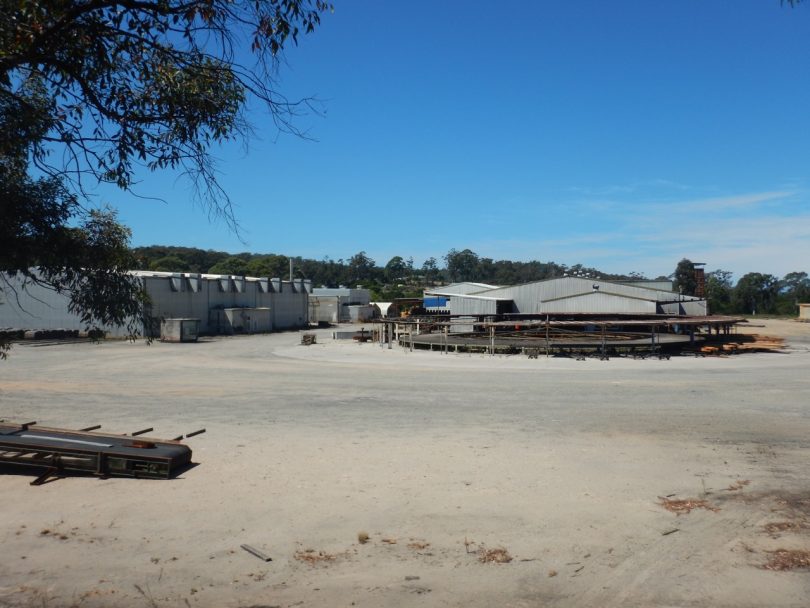
Blue Ridge Hardwoods timber mill in Eden closed after the Forestry Corporation of NSW ended its contract in 2019. Photo: Richard Barcham.
“Local small family businesses employ people for timber harvest and haulage of wood from the forests, and deliver it to local mills where mill staff process the timber into a range of products including poles, bridge decking, floorboards, decking, fencing, landscaping timbers, pallets, and a range of other products that communities use and need, creating ongoing employment in the regions,” said the Forestry Corporation spokesperson.
However, it has been well documented that Eden’s only timber mill was closed in 2019 when the Forestry Corporation didn’t renew its exclusive wood supply agreement.
An employee at Blue Ridge Hardwoods’ timber mill, who wished to remain anonymous, said operations had resumed at the mill since it was bought by Melbourne-based company South Coast Timber Holdings, but that it is “small-scale” compared to pre-2019.
The Forestry Corporation also says it has “developed harvest plans that will be supplemented with additional environmental safeguards to provide for additional searches for plants and animals, retaining a greater number of hollow-bearing trees and increasing the area of land in the operations to be excluded from harvesting.”
Richard Barcham, from Candelo in the Bega Valley, was involved in the campaign that resulted in the declaration of the South East Forests National Park in the 1990s, and he has maintained his interest in the conservation of state forests.
He says it is “crazy” that logging has been able to resume in state forests “devastated” by the Black Summer bushfires.
“It’s terrible to look out and still see the huge extent of the damage that was done,” he says.
“The practice of logging and burning has, during the past 50 years since woodchipping began, produced a fire-prone, even-aged forest with fewer tree species.
“In the wake of the fires that raged through this explosive forest, retained habitat trees, large trees and standing ‘stag’ trees were destroyed. What remains is a forest of small-diameter trees that is under severe stress as it struggles to recover.
“This degraded forest means less habitat for animals to survive. “
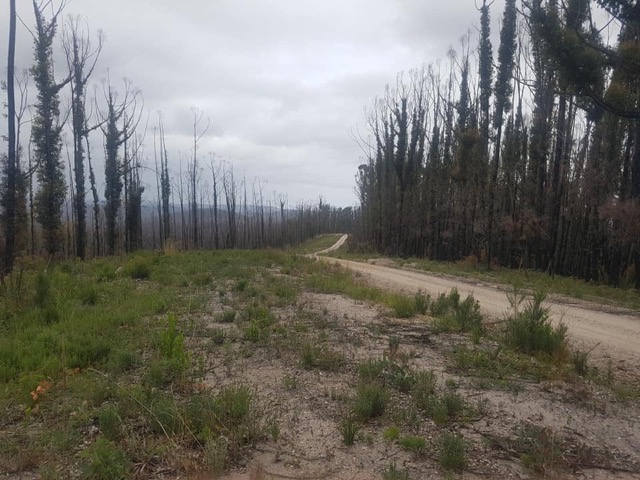
Nadgee State Forest remains blackened one year after the bushfires. Photo: Richard Barcham.
Mr Barcham recently inspected a compartment in East Boyd State Forest and Timbillica State Forest and said it was “evident” no-one had been to the area to undertake new survey work.
“It beggars belief that logging will resume based on old harvesting plans,” he said. “No-one had been along the road; nothing was taped.”
Environmental group, South East Region Conservation Alliance (SERCA), has called on NSW Minister for the Environment Matt Kean to stop the resumption of logging on the NSW South Coast, but said it is yet to receive a response.
SERCA spokesperson Harriett Swift said the science shows burnt forests logged too soon can take 200 years to recover.
“To risk the very existence of these forest ecosystems for a few boatloads of cheap export woodchips is greedy and short-sighted,” she said.







